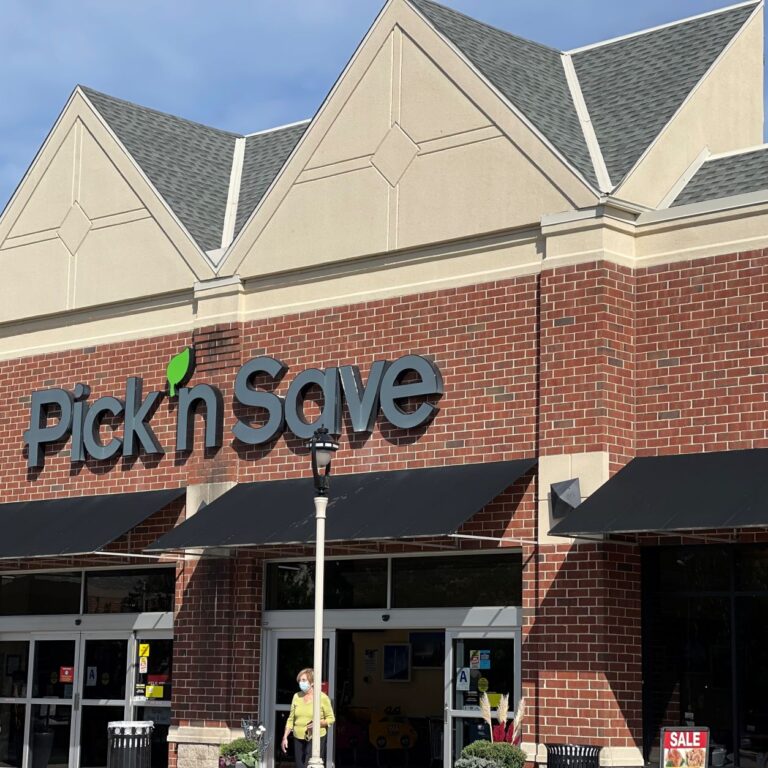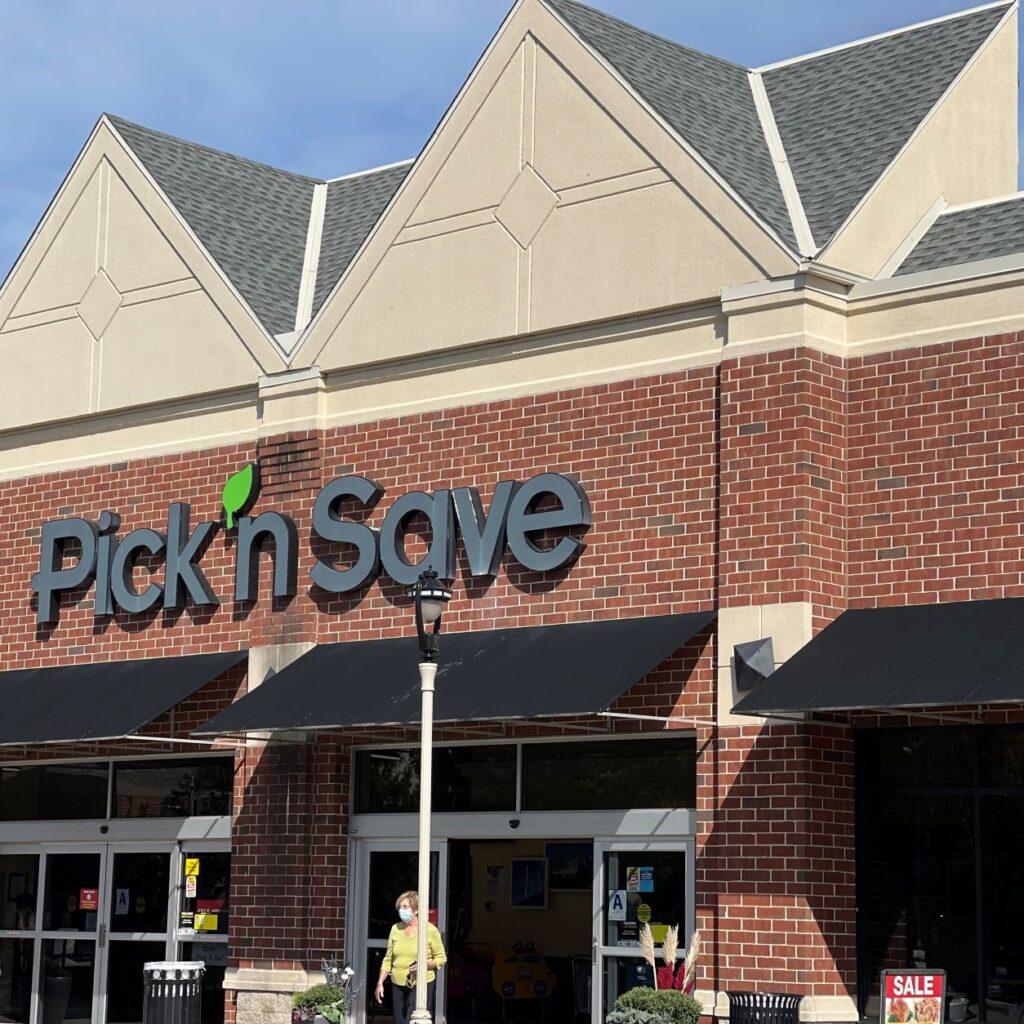What Does Your Bag Say About Your Brand?
Fashionistas and residents of large cities can spot the orange bag of Hermes (HESAY) from a mile away. The packaging from this Paris based luxury leather and lifestyle brand has become their trademark. Similarly, New York based Tiffany & Co. is synonymous with the blue packaging they use. While most of our work as a small business consultant is not done in the ultra-luxury fashion space, the branding ideas of large firms can teach us important, transferable lessons.

Luxury fashion houses are not the only brands whose packaging is seen as a status symbol. Starbucks (SBUX), the mass-market luxury coffee chain, is seen as a sign of wealth in some communities and a status symbol in many countries like South Korea. While the iconic coffee cup has served Starbucks well, there are not many larger or more ubiquitous forms of consumer packaging than bags and boxes.
Nowhere Is There More Diversity In Bags Than With Grocery Stores
Sendiks’s, a high-end grocer in suburban Milwaukee, has focused their entire brand around their high-quality red bag. This red bag is thick, elastic, highly visible and reusable. Having a high-quality bag gives Sendik’s several advantages that differentiate them in the marketplace. Like the Starbucks coffee cup, the red Sendik’s bag is iconic in the market and can be seen as sign of status and luxury. The bag has become their brand, even having their rewards program named after the bag. In addition to a rewards program, there is a Pinterest page dedicated to pictures of the bags taken from all over the world. In addition to the free promotion from the frequently reused bag, the brand also partners with local businesses and nonprofits for events. In the past, the grocer partnered with the Milwaukee Art Museum for “Red Bag Free Admission Weekend”, and with the Milwaukee Public Museum for the “Sendik’s RED BAG Weekend Deal.”
- Created a sturdy bag that people keep and reuse; a walking billboard
- Established special events to show community engagement and reward shoppers
- Quality bag cements the store as a luxury brand allowing them to charge more for staple items and private label products
- Allows this small brand to compete with big chains by making clients feel like members of a club

Kroger (KR) is America’s largest supermarket by revenue. If you have been to one of Kroger’s family of stores, you might have noticed you needed to double or triple bag your purchase to get it home safely. While these thin bags are less expensive to make and use fewer resources, they would be lucky to find a second life as a budget bathroom trashcan liner. Kroger’s brands are mass market grocery stores in predominantly middle-class areas who market themselves as providing value. Their bags continue the value theme. While you may not be showing off your Kroger bag as you walk home, value conscious customers appreciate the functionally and not having to pay extra for marketing or a social mission. Recently, Kroger has decided to follow the majority of other larger grocers and has pledged to eliminate plastic bags by 2025.
- Value brand has value bags
- Using a thinner bag may achieve the desired effect when a heavy bag might not always be necessary
- Following others to reduce waste to attract millennials by 2025

Whole Foods Market, the world’s largest natural foods store, now owned by Amazon (AMZN), moved from plastic bags to recyclable paper bags. In a 2008 press release the firm quotes their COO as saying “Central to Whole Food Market’s core values is caring for our communities and the environment, and this includes adopting wise environmental practices”. As an organic and natural foods brand, it was a wise business decision to be first to replace plastic entirely with recycled paper options.
One of Whole Food’s key demographics is affluent millennials. Research shows that this cohort is willing to pay more for products from a brand that is sustainable and uses sourcing practices they agree with. Ditching the plastic bags not only got them points with their environmentally conscious customers, but also created a unique type of rewards program that is only available at a few select grocers. Currently, Whole Foods offers a ten cent discount for every reusable bag a customer brings to checkout. Since their 2008 commitment to end the use of plastic bags, the grocery store has made additional changes to packaging by banning plastic straws and limiting other plastic packaging.
- Understands target demographics’ environmental and political concerns
- Modified packaging to maintain experience and not sacrifice quality
- Established corporate values to drive company culture and decisions
- Defines company as a pioneer in sustainability while other companies are still in the planning stages

Aldi, the value priced German grocery chain, charges for bags which aligns with their budget theme. They want their clients to know that the company has saved every bit of unnecessary overhead to yield the best price. Because Aldi charges for bags, this encourages shoppers to bring their own reusable bags. They are also famous for having customers insert a quarter into their shopping cart so that the cart can be accessed. The customer, however, receives the quarter back when the cart is returned. The German firm does this to avoid employing lot attendants to bring the carts back inside. This attention to every cost-saving detail of operation cements Aldi as an exceptional value in customers minds.
- Knows their clients want every penny of value
- Is more sustainable as a side effect
Costco (COST), many American’s favorite warehouse store, does not provide any bags. Costco famously uses shipping boxes from their products to pack customer’s groceries for the ride home. Not only does Costco not have to pay as much in recycling, they also do not have to spend money for bags and their storage.
- No bags means reduced cost
- Costco reduces their recycling bill by reusing boxes
- Contributes to warehouse bargain feeling
- Can tout environmental sustainability
Examining Grocery Bags Can Teach A Lot About Small Business
If you own a brick-and-mortar store, looking at some of the country’s biggest companies can help your packaging match your brand. From showing you are value oriented to evoking luxury and making your clients the envy of the mall, packaging can help define your brand. Take advantage of the potential of these miniature walking billboards by calling North Consulting Services to discuss how your packaging and brand identity can help your business growth.
Just because your small business is not as well-known as these larger companies, does not mean you can’t create a bag that wows your customers. Creating a bag that grabs attention can be an effective way to promote business growth. Not only can a bag influence the perceived value of your brand or product, but can also act as a walking billboard. From no bag, to budget bags, to high quality bags that customers want to reuse, your bag can be an effective marketing tool.


